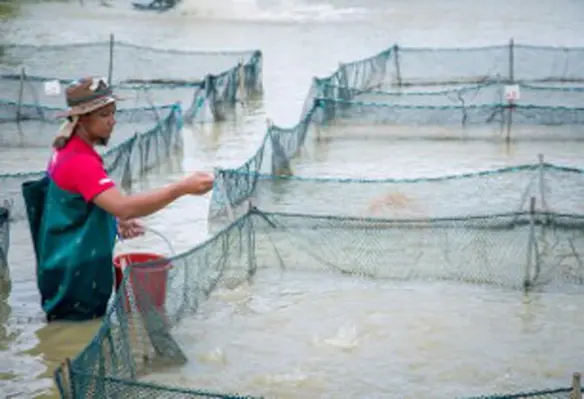Members of the Asia-Pacific Fisheries Commission (APFIC) have agreed to scale up collective efforts to ensure that fisheries and aquaculture are managed in a responsible and sustainable manner
This was announced at the 35th Session of APFIC, which has convened in Cebu, the Philippines.
As a region, Asia and the Pacific produces most of the world’s fish. The region currently contributes more than 55 per cent of global capture fisheries and 90 per cent of its aquaculture.
Resilient blue growth of capture fisheries and aquaculture in the region is of great importance to food security, nutrition, livelihood development and overall economic and social development in many countries of Asia and the Pacific and achievement of some important SDG Goals in the 2030 Agenda.
As demand for both capture fisheries and aquaculture rises, the industries need to become more resilient to the effects of climate change on fish stocks and aquaculture operation. FAO’s Regional Initiative on Blue Growth aims to provide solutions to this.
The Regional Consultative Forum Meeting involved inputs from representatives of 16 countries and 10 international and regional organizations. It focused on suggestions for improvements in sustainable fisheries and aquaculture production, management systems and governance based on the extensive sharing of knowledge, experiences and lessons by the participating countries and organisations. The meeting also called for increasing efforts to strengthen gender-sensitive, equitable and inclusive fisheries and aquaculture value chains through suggested strategies and actions at country and regional levels.




